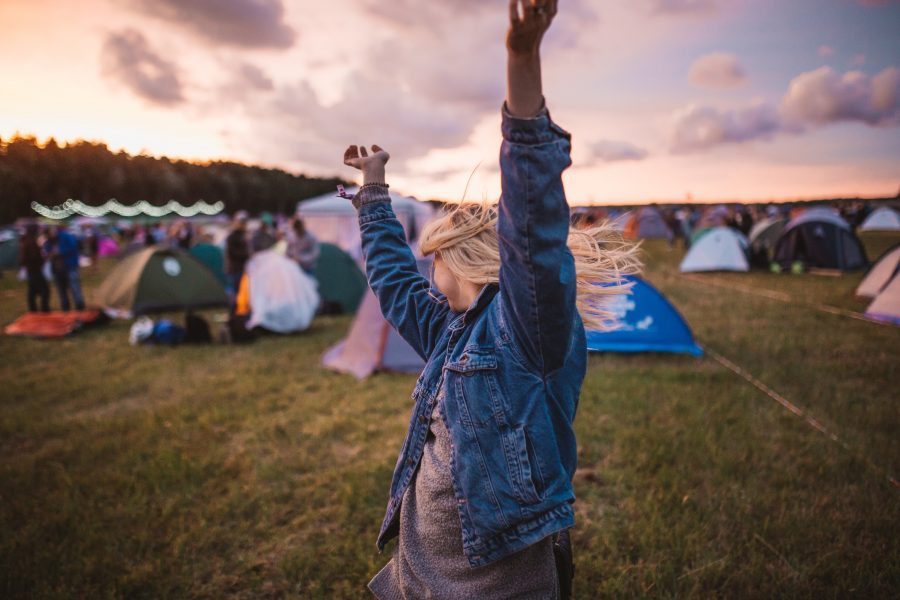Festivals: A Survival Guide

Lucy Facer gives us her best tips for ensuring that you are ready for the festival season ahead!
August brings some of the summer’s biggest and most-anticipated music festivals of the year such as Reading, Leeds, Boardmasters and Creamfields but whether you’re a seasoned festival-goer or attending one for the first time, preparation is key to making the experience as memorable and enjoyable as possible.
1. What to pack
Check the forecast before you go and prepare for all weather eventualities. A light raincoat or poncho can be easily carried or tied around your waist, while sturdy weatherproof shoes are essential for muddy terrain. Though tents can be sweltering during the day, it is always a good idea to bring layers and a good-quality sleeping bag for cooler evenings. You can use plastic bags to separate clean and dirty clothes, as well as to keep outfits together so that you don’t have to empty your entire bag to find your favourite top. Spare bin bags can also help defend your tent from leaks.
Take multiple water bottles, one for drinking water and a spare for brushing teeth or washing, as well as power banks and a charging lead to keep your phone charged. Some people even take camping stoves to avoid paying for overpriced food, though by the end of the weekend at Reading I found that buying food from a stall or local shop was most convenient. Hiking rucksacks are an easily transportable way to pack everything you need for a weekend-long festival and foldable trolleys are useful for walking long distances across the campsite. However, if you have a long train or a coach journey ahead be mindful of overpacking. Finally, use the bins provided and always take your rubbish with you as waking up to your tent being surrounded by other people’s litter is unpleasant for everyone involved.
2. Hygiene, bathrooms and safety
Festival portaloos are not for the faint-hearted so be sure to be stocked up on hand sanitizer, tissues and wipes. Though it can be tempting to avoid drinking too much water so that you can avoid using them, this is a good way to have your festival experience cut short by dehydration or heatstroke especially if alcohol is involved. At Reading, I found that the bathrooms inside the festival arena had cubicles and actual sinks so were slightly more tolerable than the campsite ones. Also, it can be useful to know where your nearest medical help point is and to take a supply of general medicines like paracetamol in case anyone feels unwell. Taking regular breaks between acts can help preserve your energy for evening headliners and the artists you most want to see. Festival season often coincides with some of the hottest days of the summer, so it is good practice to apply sunscreen and find shade when you can.
Taking regular breaks between acts can help preserve your energy for evening headliners and the artists you most want to see.
3. Camping
Be sure to arrive early to find a camping spot so that you don’t have to trek to the stages each day. Avoid camping near a fence, toilets or security towers as these can be smelly, noisy or brightly lit during the night. Pop-up tents are a hassle-free option if you want a quick camping setup, though it is best to practice putting taking them down beforehand so that you know what to expect. As a general rule, tents are smaller than advertised so a four-person tent may be better for two people who want a little more personal space. Make sure to bring something to make your tent identifiable, such as a flag, as it can be harder to find your spot in the dark than you might think. If you’re with a group of friends, setting up your tents in a circle and sectioning off your space as much as possible will deter other campers from pitching in between you.
Most importantly, take every opportunity you can to enjoy everything the festival has to offer because it is not every day you get to see so many different artists all in one place and experience the unforgettable energy of a lively festival crowd.


